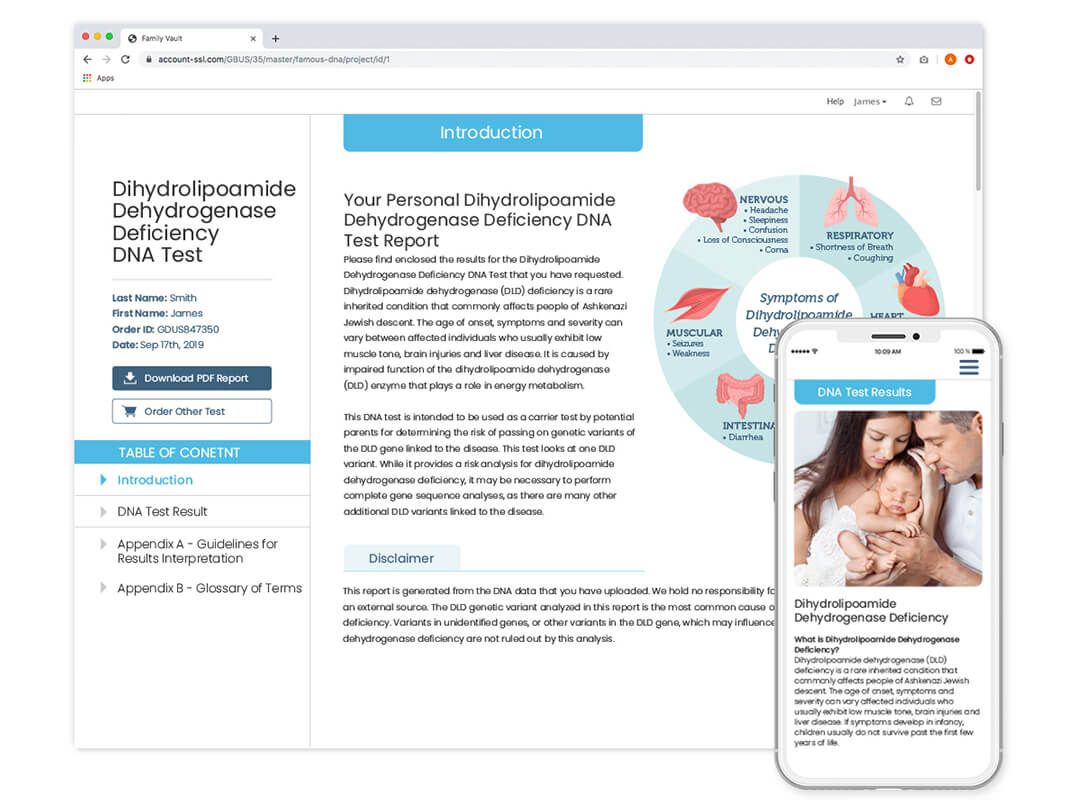Dihydrolipoamide Dehydrogenase Deficiency DNA Test
Are you a genetic carrier for dihydrolipoamide dehydrogenase deficiency? Find out with this DNA Test.
- Detects the most common variant of the DLD gene which causes dihydrolipoamide dehydrogenase deficiency
- Carrier screening test intended for couples who are planning to become pregnant
- Determine the risk of your child inheriting dihydrolipoamide dehydrogenase deficiency
- 100% private and confidential online results
Already have DNA markers? Sign in and upload your data to view results.
Need to take the DNA Test? Order our easy-to-use swab kit.





